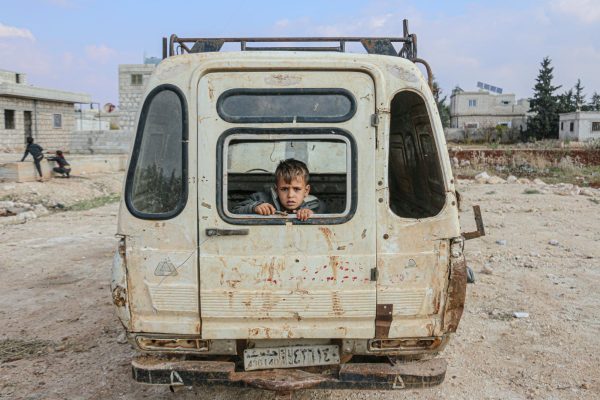“Would You Be So Inhuman?”: An Update on the Humanitarian and Political Crisis in Venezuela
Amidst turmoil and confusion about the rightful leader of Venezuela, the citizens face a lack of aid and resources dearly needed.
Questions about the legitimacy of Nicolas Maduro’s re-election as President of Venezuela have been swirling ever since the election this January. Maduro’s campaign was accused of fraud and his administration has taken questionable actions against the opposition party in the Venezuelan government, by lessening their legislative and legal powers. For years, accusations have followed high ranking government officials, connecting them to militants and drug operations. In 2017 the U.S. Treasury Department was led to place sanctions on the vice president, Tareck El Aissami, identifying him as a drug trafficker.
These charges were highlighted by the leader of the National Assembly, and the opposition party, Juan Guaido, who would become the interim president if Maduro was to be removed. Maduro has refused to back down from the presidency, and largely has the support of the military and intelligence organizations backing him in the government, creating a standstill between the two groups.
However, on Thursday, February 21st, former intelligence chief Hugo Carvajal, spoke out against Maduro. He retired from his position in Venezuela’s intelligence branch in 2012 and is currently a congressman in the Socialist Party. Carvajal addressed government’s leaders, especially those in military and intelligence, during a video released February 21st. He accused Maduro of killing, “…hundreds of young people in the streets for trying to claim the rights you stole. This without even counting the dead for lack of medicines and security.”
Speaking directly “to the generals” Carvajal asked them to question their decision to block international aid and failing to protect the lives of their citizens, “Would you be so inhuman? So hypnotized?”
Carvajal is not the only government official to speak out against Maduro’s administration, as members of the national guard, air force, and diplomats have defected and denounced Maduro. Numerous countries in Latin America, Europe, and the United States have been outspoken in their support for Guaido and the need for another, free, election to take place as soon as possible.
President Trump warned those still loyal to Maduro in the Venezuelan government, especially military leaders, that they should reject him or “lose everything”.
In spite of this increasingly insurmountable resistance, Maduro continues to deny the charges of fraud, and refuses to recognize the humanitarian crisis unfolding in Venezuela, even as citizens struggle to get medicine, food, and other essential resources. In response to aid shipments sent by foreign governments who have recognized Guaido as the rightful leader, Maduro ordered the government to stop all unauthorized imports of emergency food and aid into Venezuela. To do this, Maduro has closed the countries border with Brazil and blocked sea and air traffic from the Caribbean. Protests along the border have resulted in two civilian deaths and more than twelve wounded as security forces interceded in the protests.
Civilian suffering is only increasing as shortages of medical supplies and food imports begin, but Maduro continues to reject aid sent by the United States, as a “Trojan horse” against his government.
There is a certain validity to this statement, as opposition leaders in Venezuela, many forced to flee to Columbia, are hoping to use this aid to officially take down Maduro. His authoritarian government’s tight grip on food and medicine have ensured support among those in Venezuela. With an alternate stream of resources coming in, the opposition hopes to turn citizens and military against Maduro when they see the matter of life and death unfolding.
This Monday, February 25th, Vice President Pence met with leaders in Colombia and further increased U.S. sanctions against Venezuela, hoping to sway loyalists of Maduro’s government.
Maduro and his loyalists face a bankrupted government, strong opposition, and foreign leaders resistance. All these factors further place pressure on Maduro and those that support him as Venezuela further spirals with little resources and stability. This pressure could possibly push Maduro to peacefully resign from his position and vanquish fears of a coup or further violence.











